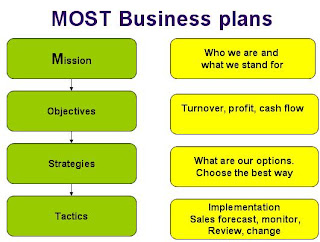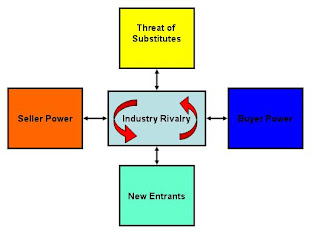Should I batten down the hatches and ride out the storm, should I spend more or less on marketing, should I lower stocks and inventories, should I pay creditors late, should I chase payments harder or should I put in place a strategic plan that will deliver growth despite the economic outlook?
Organisations that prosper during economic downturns are able to demonstrate a clear sense of direction. Typically they have a well defined strategy to grow despite the circumstances. They clearly understand customer requirements and are able to deliver products to their target markets more effectively than the competition. They are clear on what differentiates them from the competition and are able to translate this into clearly targeted marketing messages.
In other words an organisation with a clear well developed strategic plan can continue to grow even when the economy is in a downturn.
Here are a few strategic questions every organisation should ask itself once in a while.
Does your organisation have a clear sense of purpose; a strategy that all employees in the organisation are driving towards?
Do you know where you are going and when you will have arrived?
Do you have a clear communications strategy with internal and external stakeholders?
Is your advertising/marketing delivering to the business a constant stream of new prospects, enquiries and/or purchase orders?
Have you examined all the potential ways in which you can place your products and services in the hearts and minds of prospective purchasers?
Do you know your core competencies and how to exploit them?
If you can confidently reply yes to all the aforementioned questions then the chances are you will continue to prosper. If you are finding it difficult to answer any or all of the questions then you would certainly benefit from developing a defined sales and marketing strategy.
So how do we develop a strategy for growth even in an economic downturn?

MOST business plans should contain a mission, objectives, strategies and tactics section. From my experience, most organisation's business plans lack a coherent strategy. The average plan lacks sufficient depth. Whilst it covers the who we are and what we provide to whom, with target sales figures, it falls woefully short on analysis. There is often no clear indication that a number of options have been evaluated and consequently this impacts on the quality of implementation.
Building a clear and communicable strategy takes time and an understanding of strategic planning. For this reason the analytical stage is often kept to a minimum putting the implementation stage and the whole business strategy at risk of failure.
There are lots of instruments, concepts and models out there to help organisations analyse their current situation more logically and thoroughly. Let's take a look at a few.
SWOT
Analyse your Strengths, Weaknesses, Opportunities and Threats. Used to gain a quick reference on a number of areas that can be used to create plans to improve your competitive position and highlight areas that need attention to keep you at the top of your game.
PESTLE
What is influencing your business environment now and in the future. Prepare plans to ensure your business is future proof.
Porter's five forces model
A way of looking at the forces driving an industry. Porter's model makes you consider your industry from different horizons. One horizon is the threat of substitutes. Typical examples from history in this category are digital cameras which replaced old film types, LCD and plasma TVs replaced cathode ray tubes (CRTs), low energy bulbs and LEDs change the face of the lighting industry. There are literally thousands of new substitutes hit the market annually. Is your product immune to these changes? What substitutes are on the horizon that might threaten your business?

Ansoff Matrix
There are only four ways to grow a business according to Ansoff. This is a great tool to provide a variety of suggestions on how one might grow a business. It forces you to examine your business for products and markets and that leads to generating a list of ideas for consideration.
There are many tools (Boston Box, GE Matrix, Bowman's strategic clock, balanced scorecards, product life cycle, etc) to help organisations assess their market place/products and chose a strategy that is most appropriate for them at that time. Strategy needs to be frequently reviewed as the world and the business environment is constantly changing and as a business we need to shape the future or respond to it. It is also important that when making evaluations that ones chooses models and concepts that are relevant to the business.
As the economy tightens now is as good a time as any to review your strategy. I would recommend that you do some analysis of your business environment. Then and only then should you make decisions based upon the information unearthed as part of the strategic review. The old chestnut of should I cut or increase my marketing and development costs in a difficult economy should be an informed one and not made by gut feel alone.
Do not hesitate to seek help if you do not have the skills in house to develop a robust strategic plan. Paramount Learning Ltd has helped many clients clarify their strategy resulting in improved business performance.

No comments:
Post a Comment